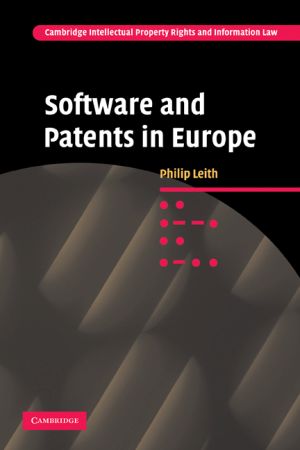
The computer program exclusion from Article 52 of the European Patent Convention (EPC) proved impossible to uphold as industry moved over to digital technology, and the Boards of Appeal of the European Patent Organisation (EPO) felt emboldened to circumvent the EPC in Vicom by creating the legal fiction of 'technical effect'. This 'engineer's solution' emphasised that protection should be available for a device, a situation which has led to software and business methods being protected throughout Europe when the form of application, rather than the substance, is acceptable. Since the Article 52 exclusion has effectively vanished, this 2007 text examines what makes examination of software invention difficult and what leads to such energetic opposition to protecting inventive activity in the software field. Leith advocates a more programming-centric approach, which recognises that software examination requires different strategies from that of other technical fields.